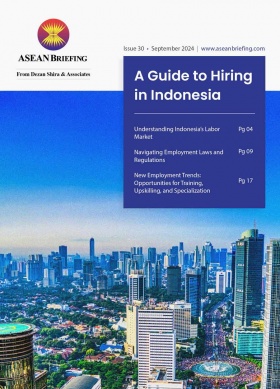China Trade with Thailand: A Growing Economic Partnership
China became Thailand’s largest foreign investor in 2023, signaling the deepening economic ties between the two nations. This shift reflects not only China’s economic significance to Thailand but also Thailand’s strategic position in Asia as a key manufacturing and investment hub. In 2023, bilateral trade between the two countries reached US$126.3 billion, with China firmly established as Thailand’s largest trading partner and investor for the 11th consecutive year.
China-Thailand economic partnership: Trade, investment, and strategic interdependence
The economic partnership between China and Thailand underscores their deep interdependence across trade and investment. Foreign direct investment (FDI) in Thailand has surged, particularly in electronics, automotive (notably electric vehicles), and smart agriculture, driven largely by Chinese investors. As of 2023, Chinese enterprises have invested US$7 billion across 588 projects in Thailand, positioning the country as a regional hub for electric vehicle production in Southeast Asia. This growth is supported by Thailand’s EV3.5 program, RCEP’s tariff reductions, and zero tariffs on imported used machine tools, all of which attract investment in advanced manufacturing and new energy vehicles (NEVs).
As both nations work toward a “China-Thailand Community with a Shared Future,” this robust trade and investment partnership, bolstered by strategic initiatives like RCEP and BRI, continues to drive economic growth and industrial collaboration across key sectors.
Below is a breakdown of the main areas of trade from China to Thailand and from Thailand to China:
- Capital and Intermediate Goods
- Machinery and Equipment: China exports a significant amount of machinery, industrial equipment, and components used in Thailand’s manufacturing sector.
- Electronics and Electrical Appliances: China is a major supplier of consumer electronics, such as mobile phones, televisions, computers, and parts for Thailand’s electronics manufacturing.
- Automotive Parts and Components: China supplies a variety of automotive parts, including engines, transmission components, and other vehicle parts.
- Chemical Products and Pharmaceuticals
- Pharmaceuticals: China exports medicines, medical devices, and health products to Thailand, supporting its growing healthcare sector.
- Chemicals: A wide range of chemicals, including industrial chemicals, plastics, and raw materials for manufacturing, is imported from China to Thailand.
- Textiles and Apparel
- Textiles: China is a leading supplier of raw textiles, including fabrics and materials used in Thailand’s garment industry.
- Clothing and Accessories: Finished garments and apparel are also exported from China to Thailand, often at competitive prices.
- Food and Agricultural Products
- Processed Food: China exports processed foods, beverages, and packaged goods, including snacks, canned products, and alcoholic beverages, to Thailand.
- Steel and Metals
- Steel and Iron Products: China exports large quantities of steel, aluminum, and iron to Thailand, which are used in construction, infrastructure projects, and manufacturing industries.
Thai exports to China
- Agricultural Products
- Tropical Fruits: Thailand is a leading exporter of tropical fruits to China, including durian, mangoes, longan, lychees, and bananas. China is Thailand’s largest market for these agricultural exports.
- Seafood: Thailand exports a variety of seafood products, including shrimp, fish, and crab, to China.
- Rice: Thailand is one of the world’s largest exporters of rice, and China is a key importer of Thai rice, particularly premium varieties such as jasmine rice.
- Natural Rubber
- Rubber: Thailand is one of the largest producers of natural rubber, and China is a major market for Thai rubber used in manufacturing tires, automotive products, and other industrial goods.
- Wood and Paper Products
- Wood: Thailand exports a significant amount of wood, timber, and other forest products to China, which is used for furniture manufacturing and construction materials.
- Paper and Pulp: China imports paper and paperboard products from Thailand for use in its manufacturing industries.
- Electronics and Electrical Goods
- Electronic Components: Thailand exports electronic parts, such as semiconductors, integrated circuits, and components used in China’s vast electronics manufacturing sector.
- Computers and Consumer Electronics: Finished consumer electronics, such as computers, TVs, and smartphones, are also exported to China.
- Precious Metals and Jewelry
- Gold and Precious Metals: Thailand is a significant exporter of gold and other precious metals, which are used for jewelry making and investment purposes in China.
- Jewelry: Thai jewelry, particularly gold and gemstone products, is in demand in China’s growing luxury market.
Strengthening China-Thailand trade through RCEP and BRI
The Regional Comprehensive Economic Partnership (RCEP), effective since January 1, 2022, has deepened economic ties between Thailand and China, fostering growth across Thai industries like agriculture, textiles, and automobiles. With tariff reductions and enhanced trade networks among its 15 Asia-Pacific members—including ASEAN, China, Japan, South Korea, Australia, and New Zealand—Thailand’s trade with RCEP countries rose by 7.11 percent in 2022, totaling US$300 billion.
The Belt and Road Initiative (BRI) has further diversified trade channels, expediting Thai goods to China. Through the China-Laos Railway, a flagship BRI project, fresh Thai durians now reach Chongqing in just four days—half the time of older land-sea routes—making trade both faster and more cost-effective.
Visa-free travel: Enhancing people-to-people exchange
Since March 2024, citizens from both China and Thailand will be able to travel between the two countries without visa requirements. As the 50th anniversary of China-Thailand diplomatic relations approaches, Sanan Angubolkul, chairman of the Thai Chamber of Commerce, highlighted this milestone as a step toward deeper people-to-people exchanges and mutual understanding, strengthening the relationship on multiple levels. This move has already led to a surge in travel interest, with a 200 percent increase in searches for “Bangkok” on Chinese travel platforms, signaling growing commercial and cultural ties.
About Us
ASEAN Briefing is one of five regional publications under the Asia Briefing brand. It is supported by Dezan Shira & Associates, a pan-Asia, multi-disciplinary professional services firm that assists foreign investors throughout Asia, including through offices in Jakarta, Indonesia; Singapore; Hanoi, Ho Chi Minh City, and Da Nang in Vietnam; besides our practices in China, Hong Kong SAR, India, Italy, Germany, and USA. We also have partner firms in Malaysia, Bangladesh, the Philippines, Thailand, and Australia.
Please contact us at asean@dezshira.com or visit our website at www.dezshira.com and for a complimentary subscription to ASEAN Briefing’s content products, please click here.








